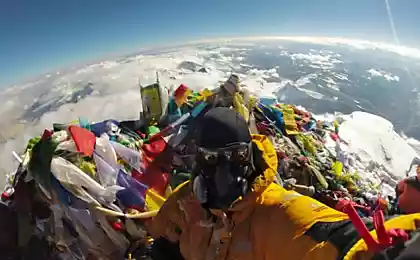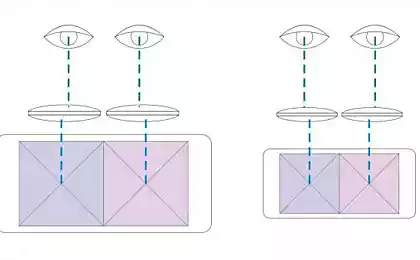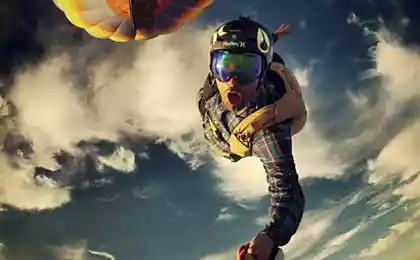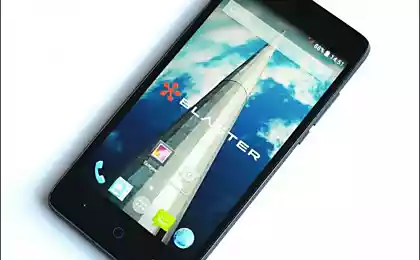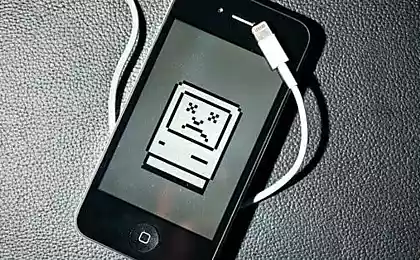240
What Your Selfie Can Tell You About Your Personality
Your handwriting, your handshake, your inbox — almost everything you do and touch can tell you about you. A new psychological study confirms this rule: You can easily learn a lot about your personality from your selfies.
The study, led by Lin Ki of Nanyang University of Technology in Singapore, analyzed 123 selfies from Sina Weibo, a popular Chinese microblogging service. Each person whose selfie was studied filled out a questionnaire with questions about personality traits.
In the second part of the experiment, selfies were shown to 107 Chinese students who were asked to share their identities. As a result, the researchers found a curious connection between selfies and personality traits.
So, more friendly people were more likely to film themselves from the bottom up. On the background of selfies taken by more conscious people, less often got personal belongings and other details. People who were open to new experiences were more likely to show positive emotions in their photos. People suffering from neuroticism tend to be photographed with a “duck” expression.
But here's the catch: when students were shown selfies, they were mostly unable to correctly identify the personality traits of the people they were depicting. For example, they incorrectly thought that clenched lips meant openness of character, and lonely people in photos are nervous. The only thing that the students guessed was that the positive emotions expressed in the photo indicate a person’s openness to new experiences and impressions.
The researchers suggested that the reason for the wrong assumptions expressed by students was that most people in selfies try to look funny, which makes it difficult to determine their character.
The study also has some limitations. The results may not apply to other nationalities and cultures. In addition, the authors of the selfies themselves assessed their personality, which could also affect the accuracy of the assessments.
However, this study paves the way for further research into how we present ourselves online. For example, the authors of the study propose to create automatic algorithms that will detect “duck” facial expressions on selfies and help prevent the development of neuroticism.
In addition, this study shows that when you post a selfie on the Internet, you tell more about yourself than you think. In other words, trying to make the right impression on social media, you won’t be able to hide your true character traits. published
P.S. And remember, just changing our consumption – together we change the world!
Source: hi-news.ru/research-development/chto-vashe-selfi-mozhet-rasskazat-o-vashem-xaraktere.html
The study, led by Lin Ki of Nanyang University of Technology in Singapore, analyzed 123 selfies from Sina Weibo, a popular Chinese microblogging service. Each person whose selfie was studied filled out a questionnaire with questions about personality traits.
In the second part of the experiment, selfies were shown to 107 Chinese students who were asked to share their identities. As a result, the researchers found a curious connection between selfies and personality traits.
So, more friendly people were more likely to film themselves from the bottom up. On the background of selfies taken by more conscious people, less often got personal belongings and other details. People who were open to new experiences were more likely to show positive emotions in their photos. People suffering from neuroticism tend to be photographed with a “duck” expression.
But here's the catch: when students were shown selfies, they were mostly unable to correctly identify the personality traits of the people they were depicting. For example, they incorrectly thought that clenched lips meant openness of character, and lonely people in photos are nervous. The only thing that the students guessed was that the positive emotions expressed in the photo indicate a person’s openness to new experiences and impressions.
The researchers suggested that the reason for the wrong assumptions expressed by students was that most people in selfies try to look funny, which makes it difficult to determine their character.
The study also has some limitations. The results may not apply to other nationalities and cultures. In addition, the authors of the selfies themselves assessed their personality, which could also affect the accuracy of the assessments.
However, this study paves the way for further research into how we present ourselves online. For example, the authors of the study propose to create automatic algorithms that will detect “duck” facial expressions on selfies and help prevent the development of neuroticism.
In addition, this study shows that when you post a selfie on the Internet, you tell more about yourself than you think. In other words, trying to make the right impression on social media, you won’t be able to hide your true character traits. published
P.S. And remember, just changing our consumption – together we change the world!
Source: hi-news.ru/research-development/chto-vashe-selfi-mozhet-rasskazat-o-vashem-xaraktere.html


